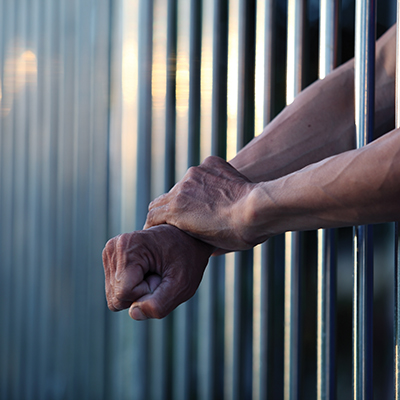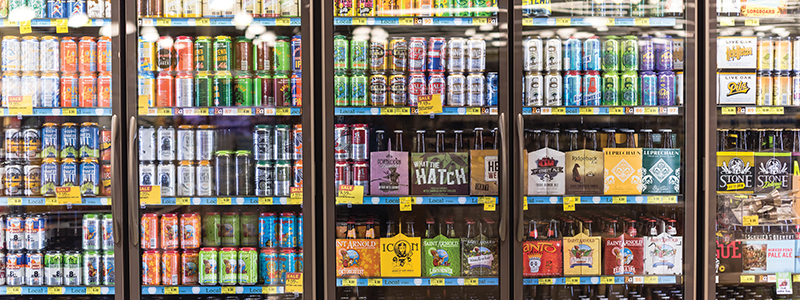Bottom Line
The new heroin
The street name is “Pink.” To backyard chemists, it’s known as U-47700.
Eight times stronger than heroin, the synthetic opioid—one of the contributing causes of Prince’s death earlier this year—has recently entered Oklahoma. It’s responsible for at least two overdose deaths in the state so far, and 15 across the country. It can be purchased online, and it’s perfectly legal, for now.
Pink is the latest synthetic drug to hit Oklahoma since House Bill 2666 became law in November 2014. The bill effectively made synthetic marijuana—aka K2, or spice—a Schedule I controlled substance and the possession and distribution of it illegal in Oklahoma.
How easy is it to acquire? After a few false starts, I found a halfway reputable website complete with a price list, contact info, policies, shopping cart and “Dark Web/Escrow” where you can “order risk free.” It offers a powdered form of the drug, branding it as an “oxycodone replacement.” The price ranged from $47 a gram to $4,497 for 1000 grams. To purchase it, one only needs a working knowledge of PGP (Pretty Good Privacy) software and Bitcoin currency.
“I’ve never heard of this synthetic drug,” said Tulsa Police Department spokesman Leland Ashley. “But I do know that synthetic drugs are constantly changing to try to stay ahead of the different drugs that get outlawed.”
Oklahoma State Bureau of Investigation agent Jessica Brown said she’d never heard of the drug until this October, when the OSBI crime lab began examining the two overdose cases.
The Upjohn Company invented U-47700, or Pink, as a synthetic alternative to morphine in 1978. Its properties make it similar to another synthetic opioid called fentanyl, the effects of which Pink’s most resemble.
Upjohn gave U-47700 a research designation and did not perform any clinical trials. The formula can be found in medicine journals.
Pink is legal in more states than marijuana is illegal. The DEA temporarily promoted it to a Schedule I controlled substance “to avoid an imminent hazard to the public safety.”
“This stuff is so powerful that if you touch it, you could go into cardiac arrest,” a Utah police chief told NBC News.
While the Oklahoma Bureau of Narcotics and OSBI Crime Labs will submit Pink to the Oklahoma legislature in 2017, for the time being it’s not against the law—just against better judgment.
Bottom Line: In a state that has one of the highest rates of opioid abuse and overdose in the country, the last thing we need is yet another easy-to-acquire variant.
De-pants

In one of the most narrowly contested city council contests in recent memory, Vanessa Hall-Harper defeated incumbent Jack Henderson to become District 1’s city councilor on Election Day.
With her win, Hall-Harper hopes to push forward an agenda for her mostly black constituency that fosters better communication among the city’s elected and appointed officials in a time of racial turmoil and upheaval.
“I think the people thought and understood that it’s time for a change,” Hall-Harper told the Tulsa World. “I’m appreciative they supported me.”
Hall-Harper has worked for Tulsa County for two decades, including 15 years as a policy manager for the Tulsa Health Department.
“My focus has always been to just engage the community, to make myself available to my community and, hopefully, to act on their concerns,” Hall-Harper said.
Henderson has served seven consecutive terms on the city council. He was first elected in 2004.
He famously proposed a city ordinance that would’ve restricted how low Tulsans could wear their pants in 2013. He felt baggy pants, or wearing pants below the hips, was a problem that the city needed to address.
Even then, though, he felt “it is probably going to get me unelected.”
Ya think?
When this piece went to press, Henderson was considering challenging the election results because he suspected voter fraud.
Bottom Line: Pull your pants up, Jack. You lost.
Naturally
One day after a historic election day fraught with nativist and xenophobic rhetoric, 43 immigrant men and women from 17 countries became naturalized U.S. citizens at Booker T. Washington High School.
Many of the high school’s students filled its field house to witness the ceremony.
Among the attendees was Tulsa mayor-elect G.T. Bynum and retired chief probation officer for the federal court Larry Morris. Bynum made a not-so-subtle reference to the country’s future by referring to its past.
“[You] have a responsibility to prove to the world that a government that is dedicated to equa lity, a government that is dedicated to the people, that is governed by the people for the people, can exist, and can continue,” Bynum told the new citizens.
In remarks, Morris addressed the new citizens with words of encouragement and hope.
“Each of you are here today because you have chosen to pursue a better life for yourselves and for your families, so I encourage you to dream big and set some lofty goals,” Morris said. “After all, this is America, where dreams really do come true.”
Bottom Line: This is what we look like at our best.
Will vote for beer
With the passing of state question 792, Oklahomans overwhelmingly voted to allow the sale of strong beer and wine in more retail locations—notably convenience stores and grocery stores.
The state question passing also means liquor stores will be allowed to sell cold beer. The vote repeals part of the state constitution, which will be amended to no longer reflect a difference between 3.2-percent beer and strong beer.
The amendment to the constitution goes into effect on Oct. 1, 2018. But lawmakers still must answer questions regarding time-of-day sales cutoffs (it’s currently 9 p.m.) and whether a cashier needs to be a certain age to sell high-point alcohol in liquor, grocery or convenience stores.
The 26 dry counties—including Haskell, Adair, Latimer, and Okfuskee—will remain so until voters in those counties vote repeal prohibition laws there. Adair and Latimer were two of the five counties that voted against state question 792.
Bottom line: Over $2 million was spent in support of campaigning for a “yes” vote on state question 792. $1,613,507 of that money came from Walmart. Just so we know who the real winner is here.
It's a start

With the passing of state questions 780 and 781, Oklahoma district attorneys no longer have the ability to file felony charges for “personal use” drug possession. (Think of “personal use” as that half-ounce of weed your friend got caught with.)
It also means the threshold for a property crime to be charged as a felony has doubled—from $500 to $1,000.
State question 781 also means money saved from not incarcerating such offenders will be used to rehabilitate them instead with treatment options.
While the law goes into effect in July 2017, no one knows how it will affect change at the local level outside of the densely populated counties of Tulsa and Oklahoma.
“The problem is that many of these communities don’t have the options that we do here in Tulsa,” Tulsa Assistant District Attorney John David Luton told The Frontier.
“We’re fortunate in Tulsa to have funding for drug court, or mental health court, or veterans court, or women in recovery. But if you go to Adair County, or other counties, that type of thing isn’t there to the degree it is here. So where are people going to find that treatment?”
Bottom line: This is not a perfect solution. But it beats the hell out of throwing good people who need treatment into an over-populated cage with actual criminals.



.jpg)
.jpg)
